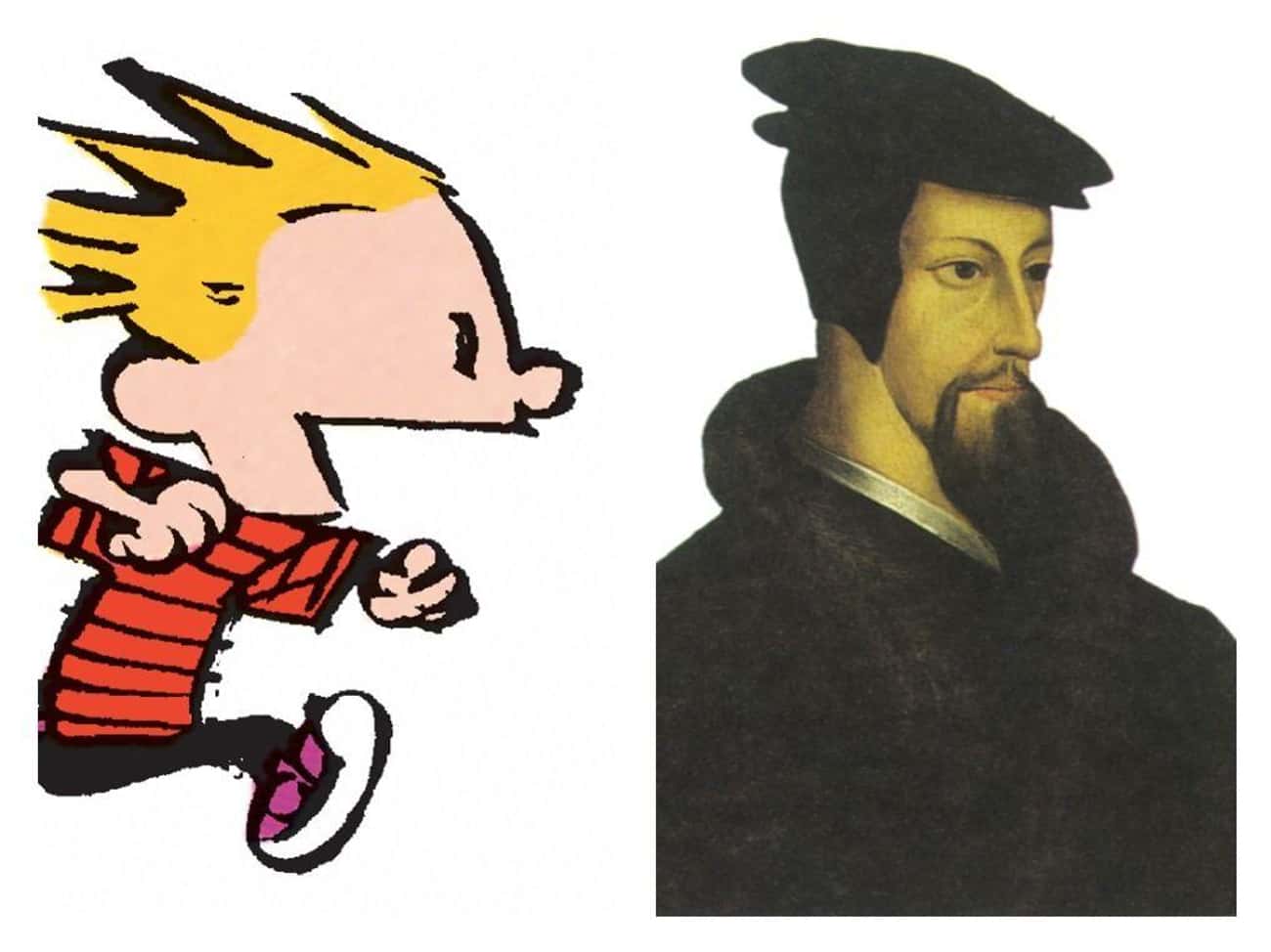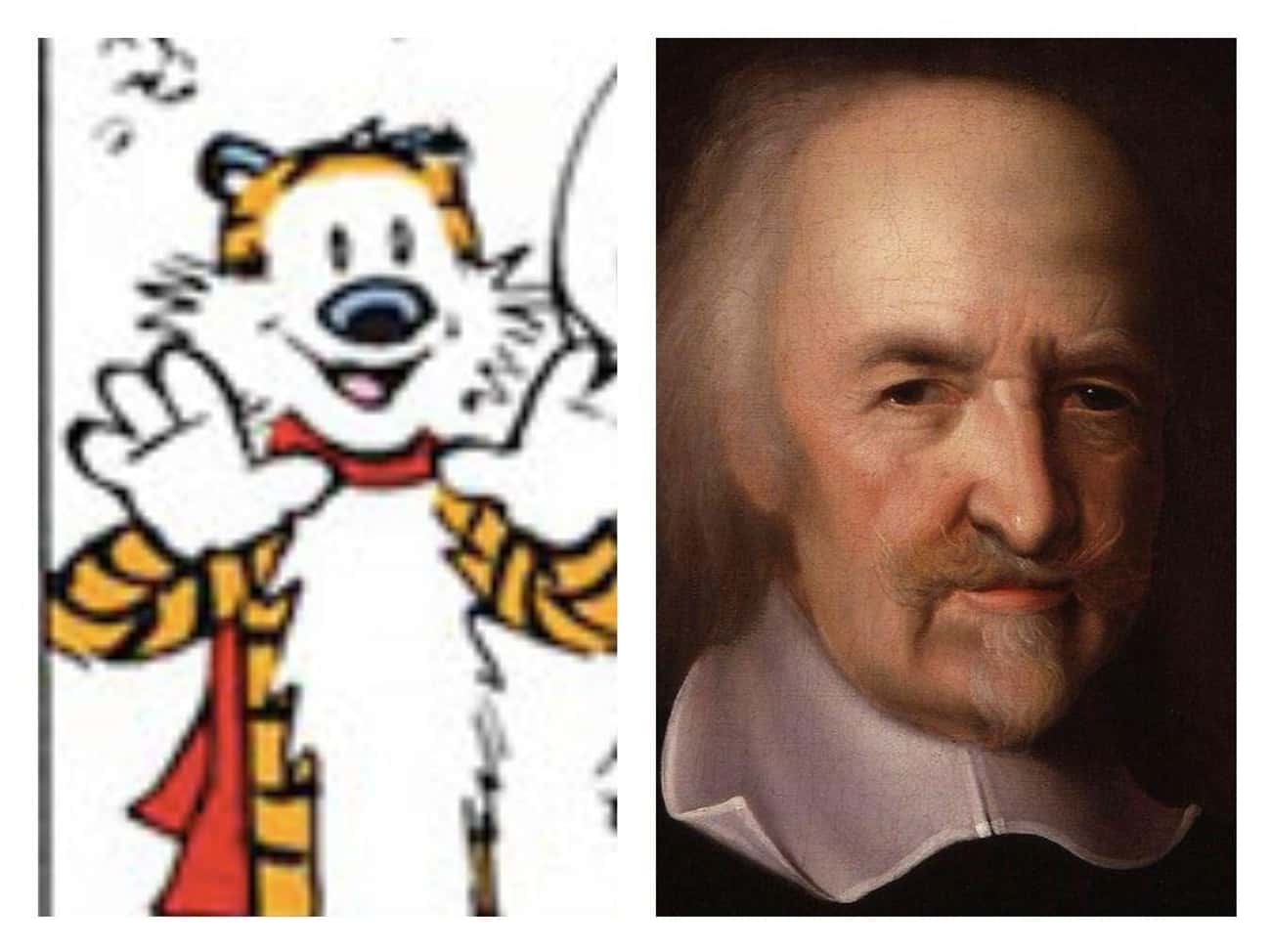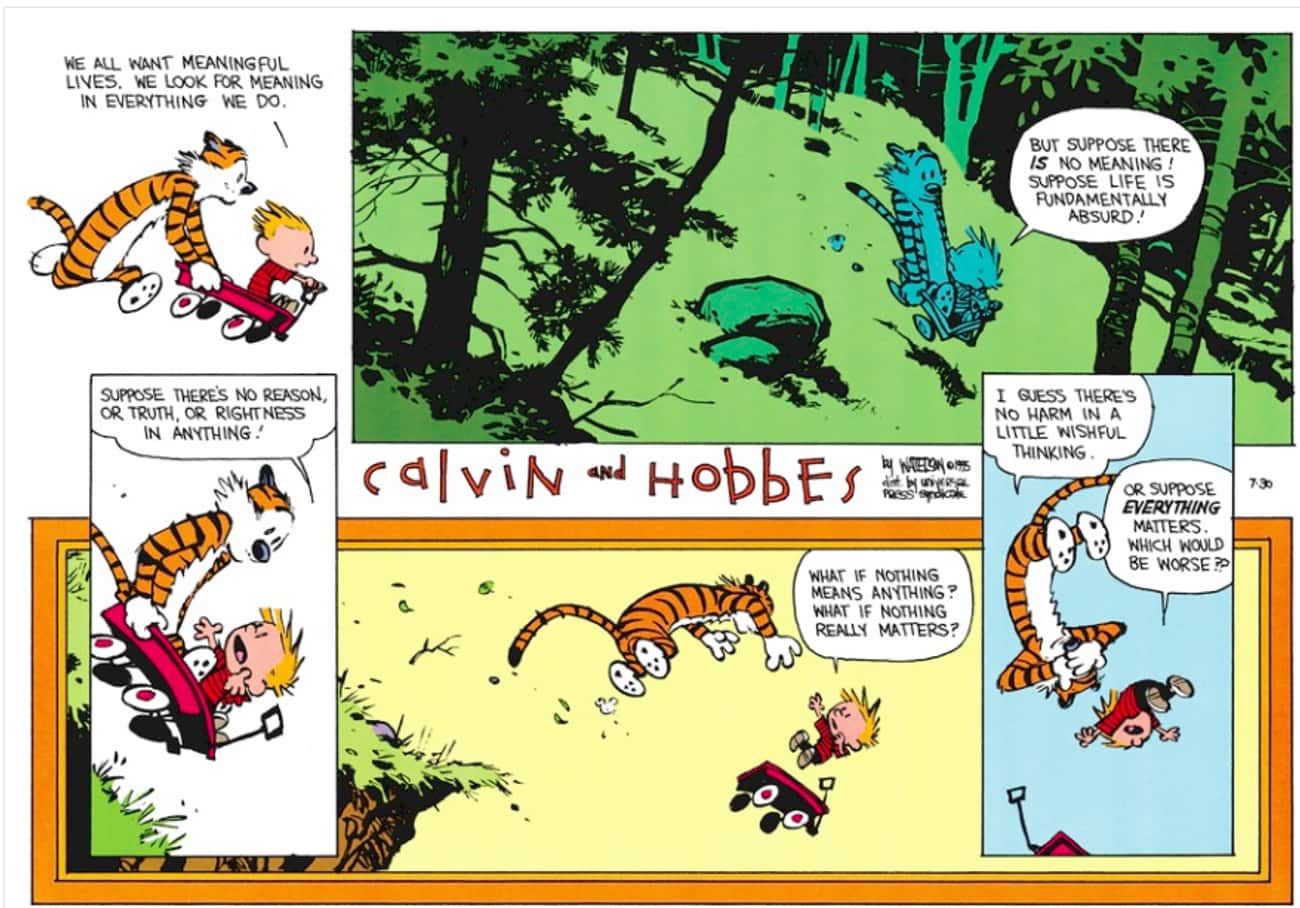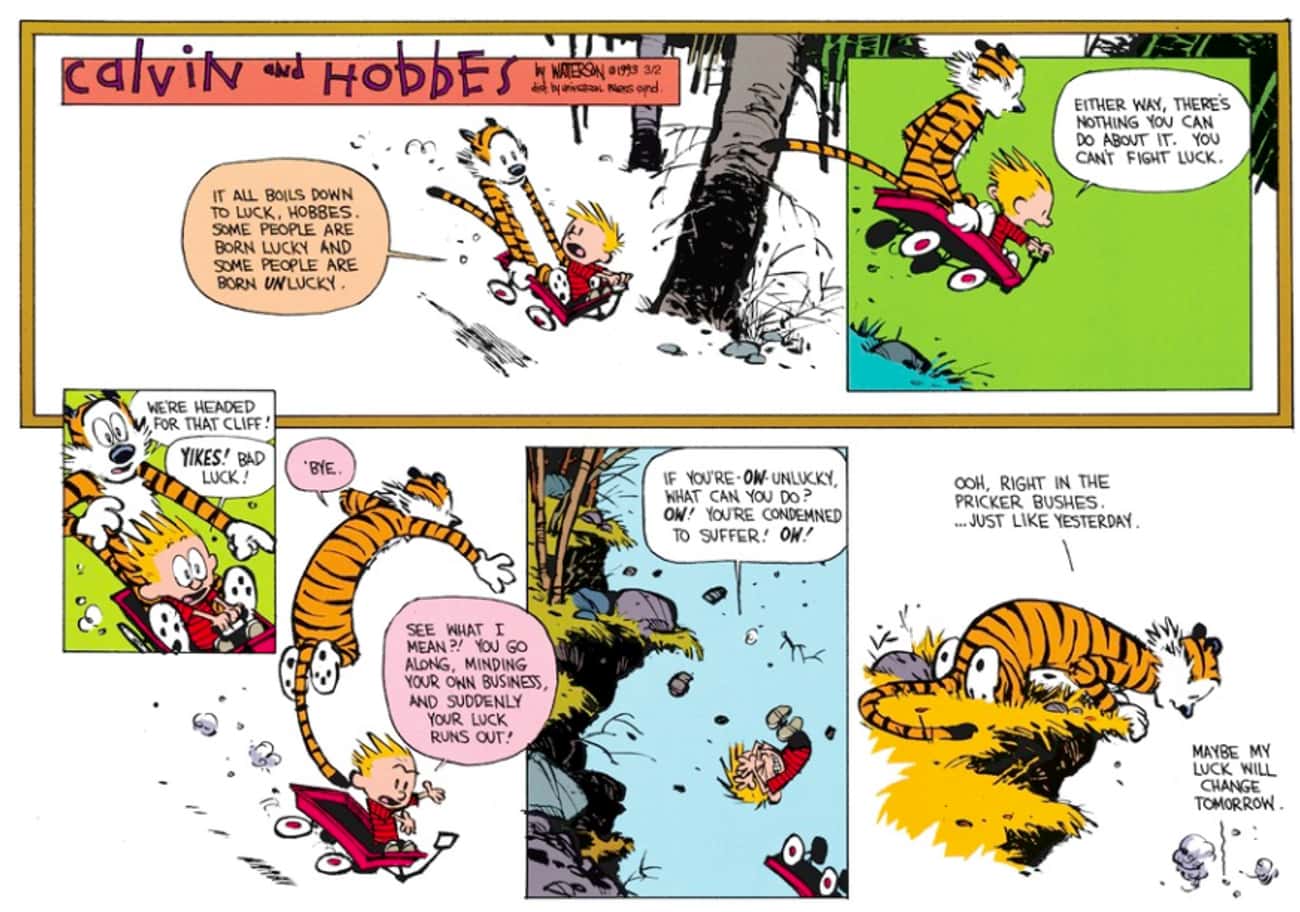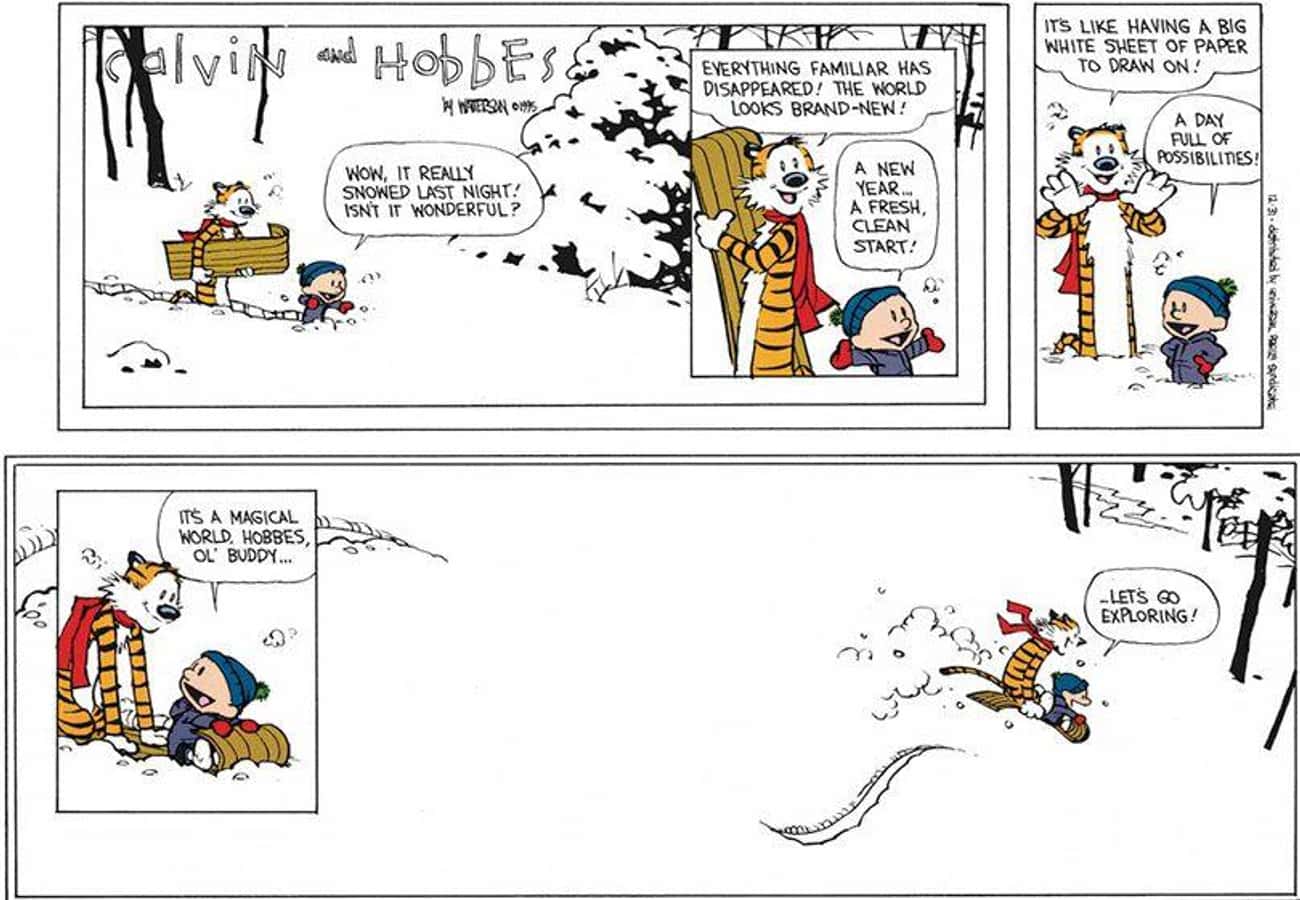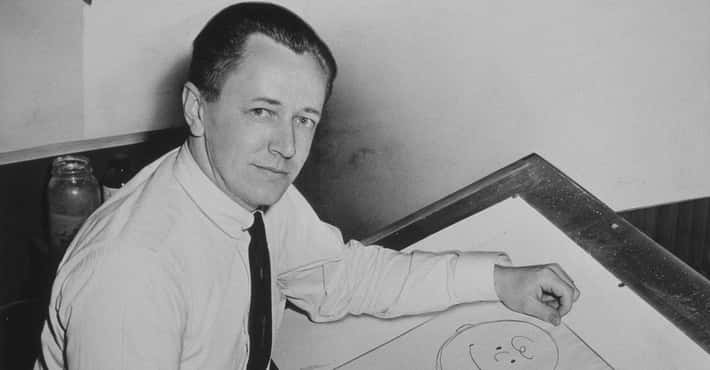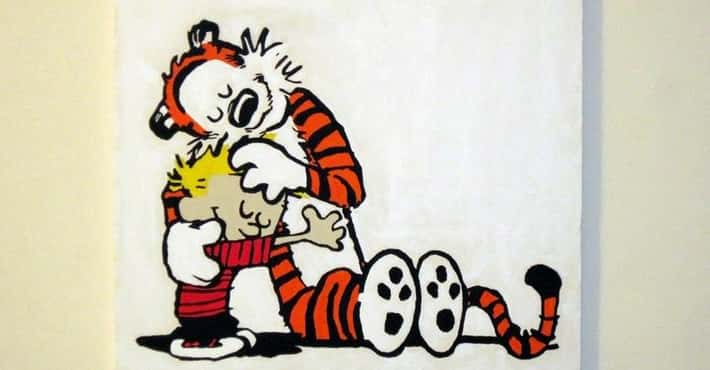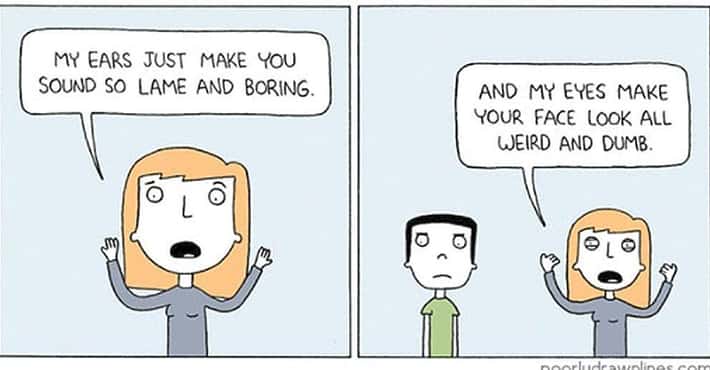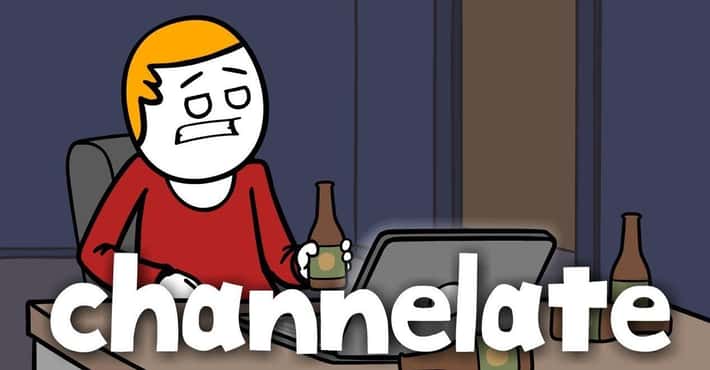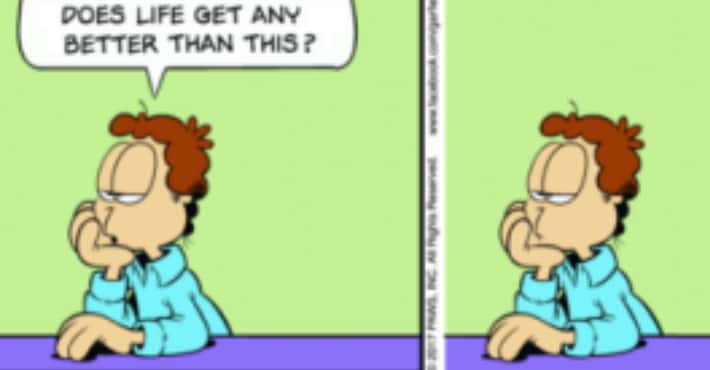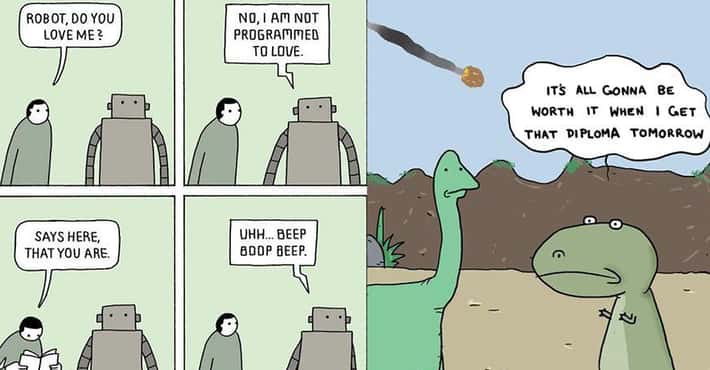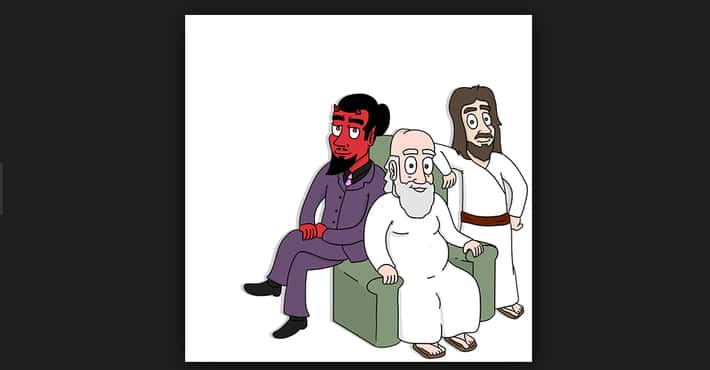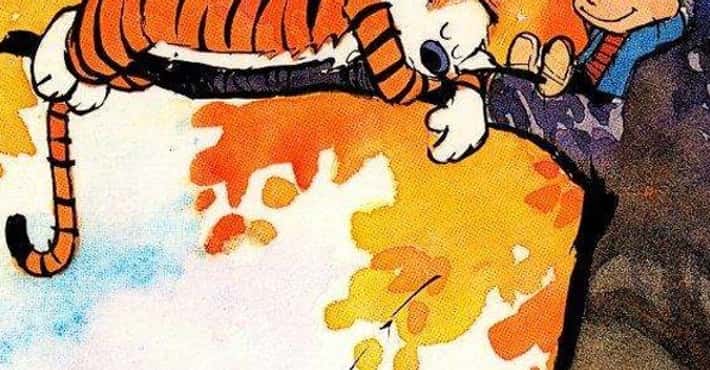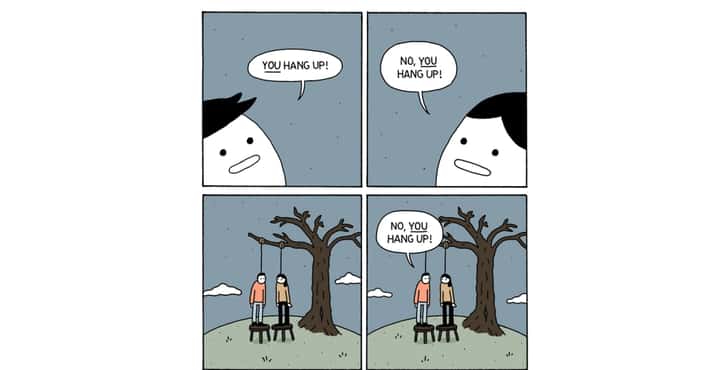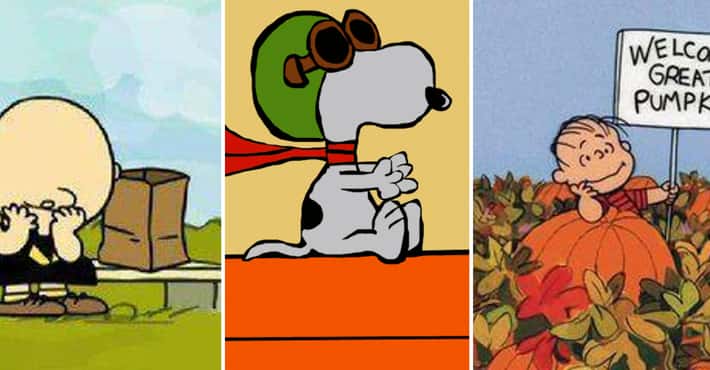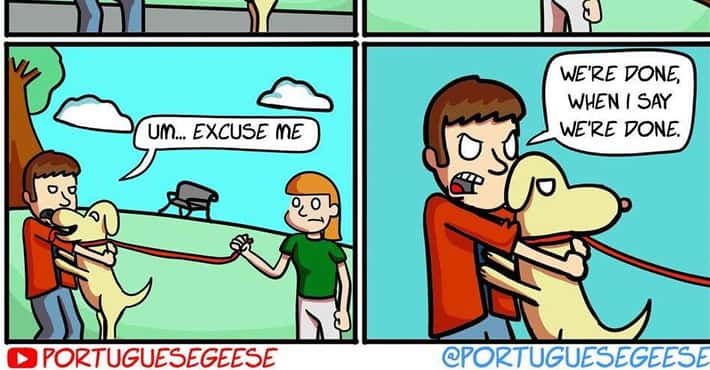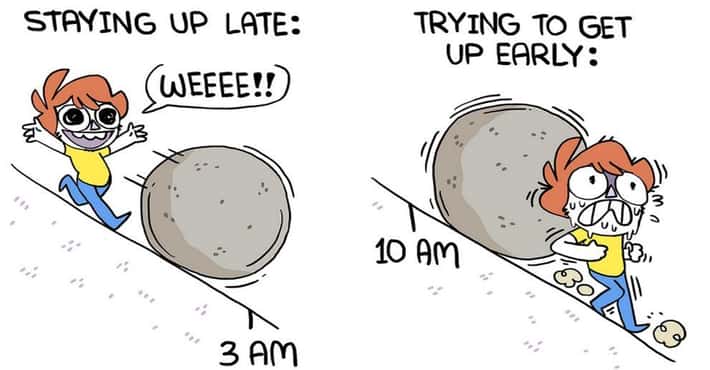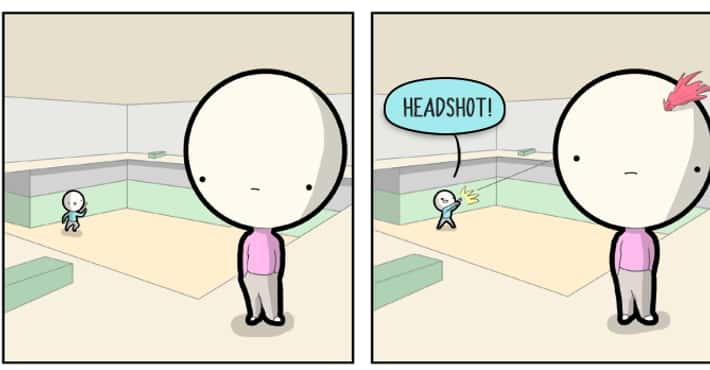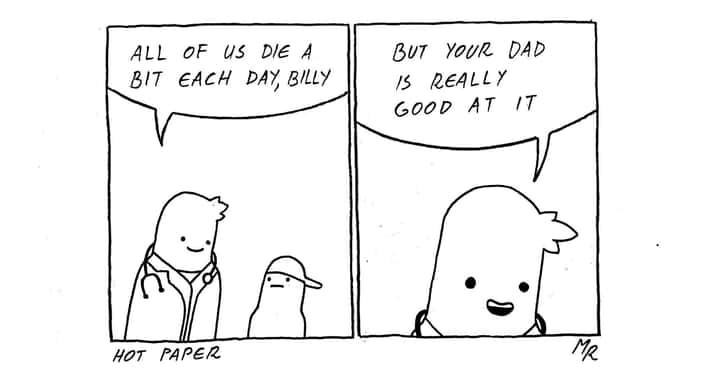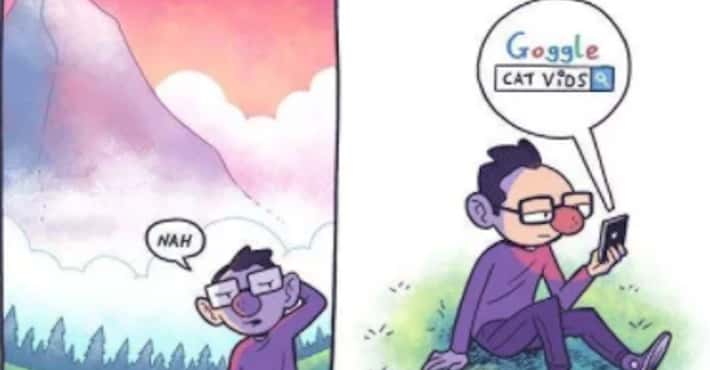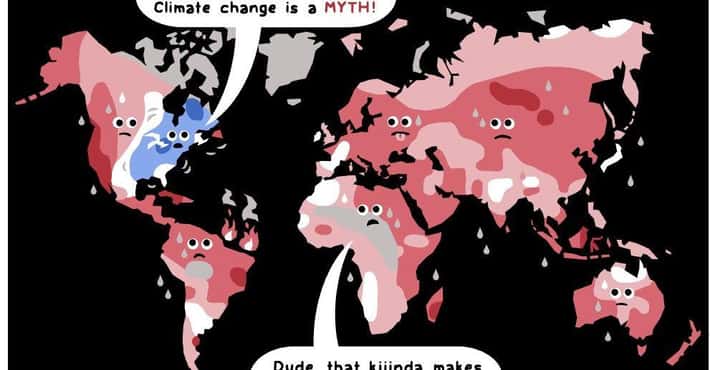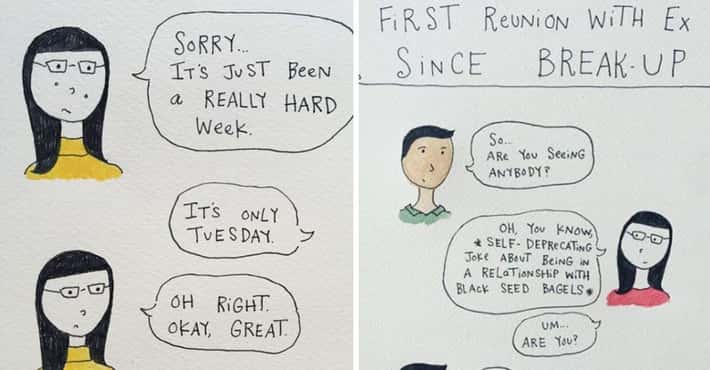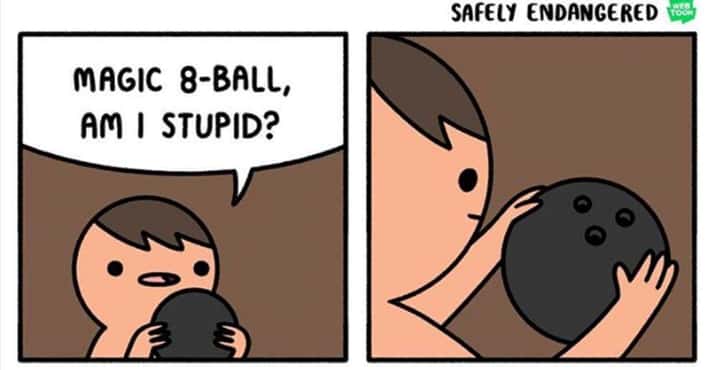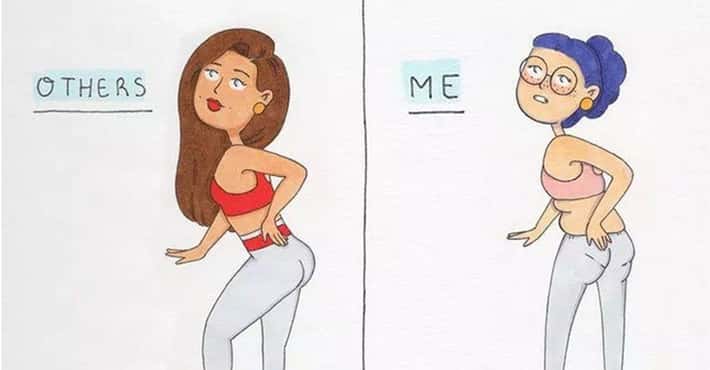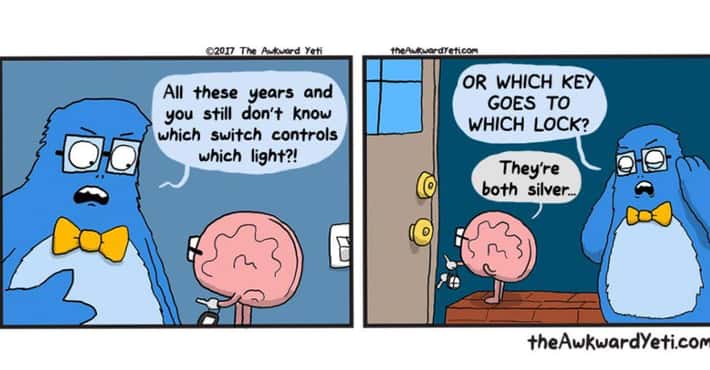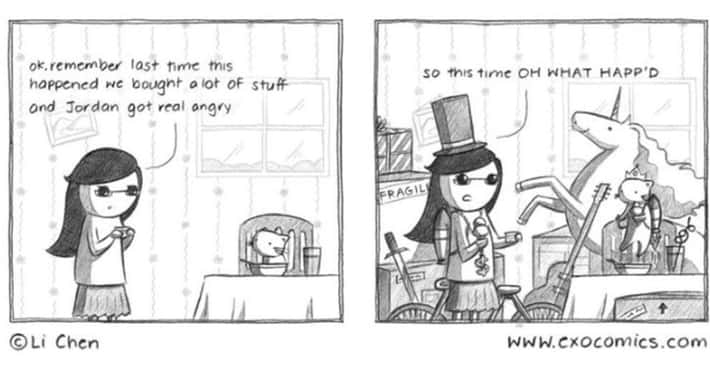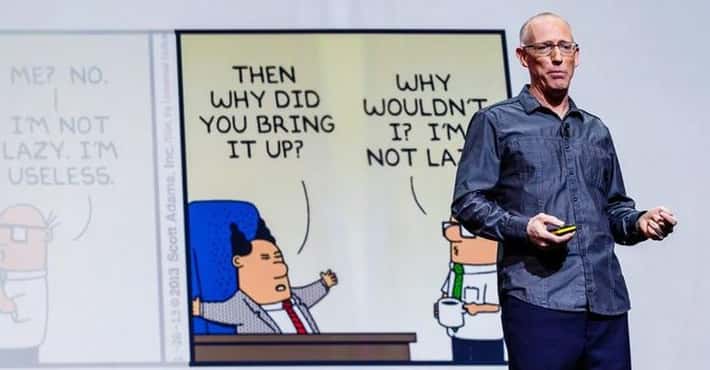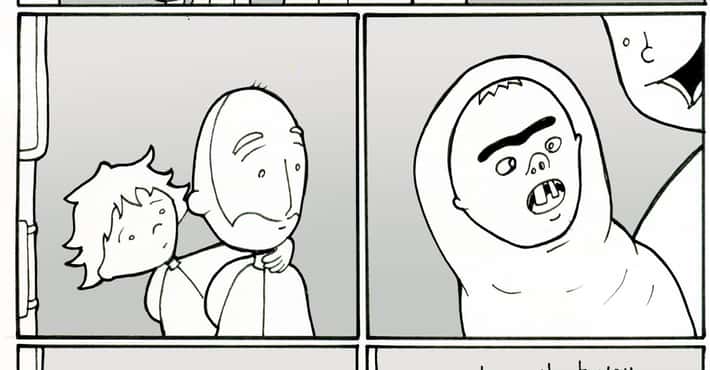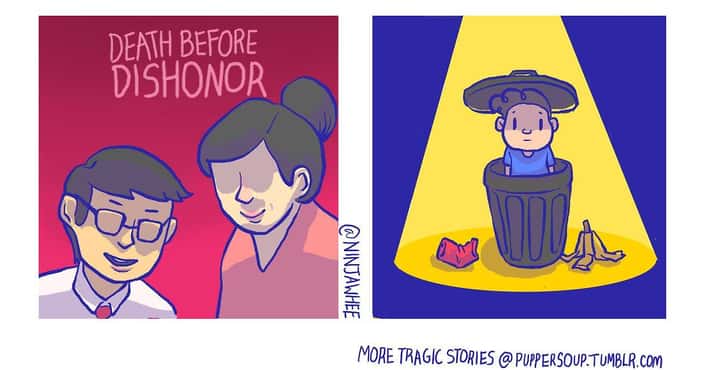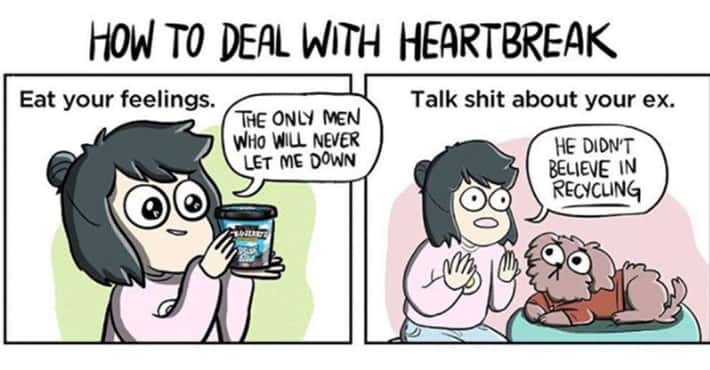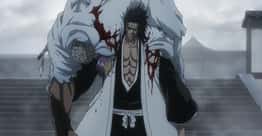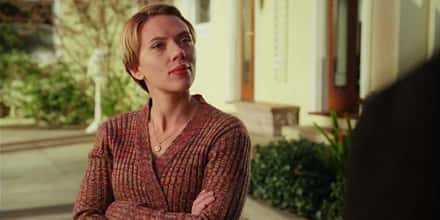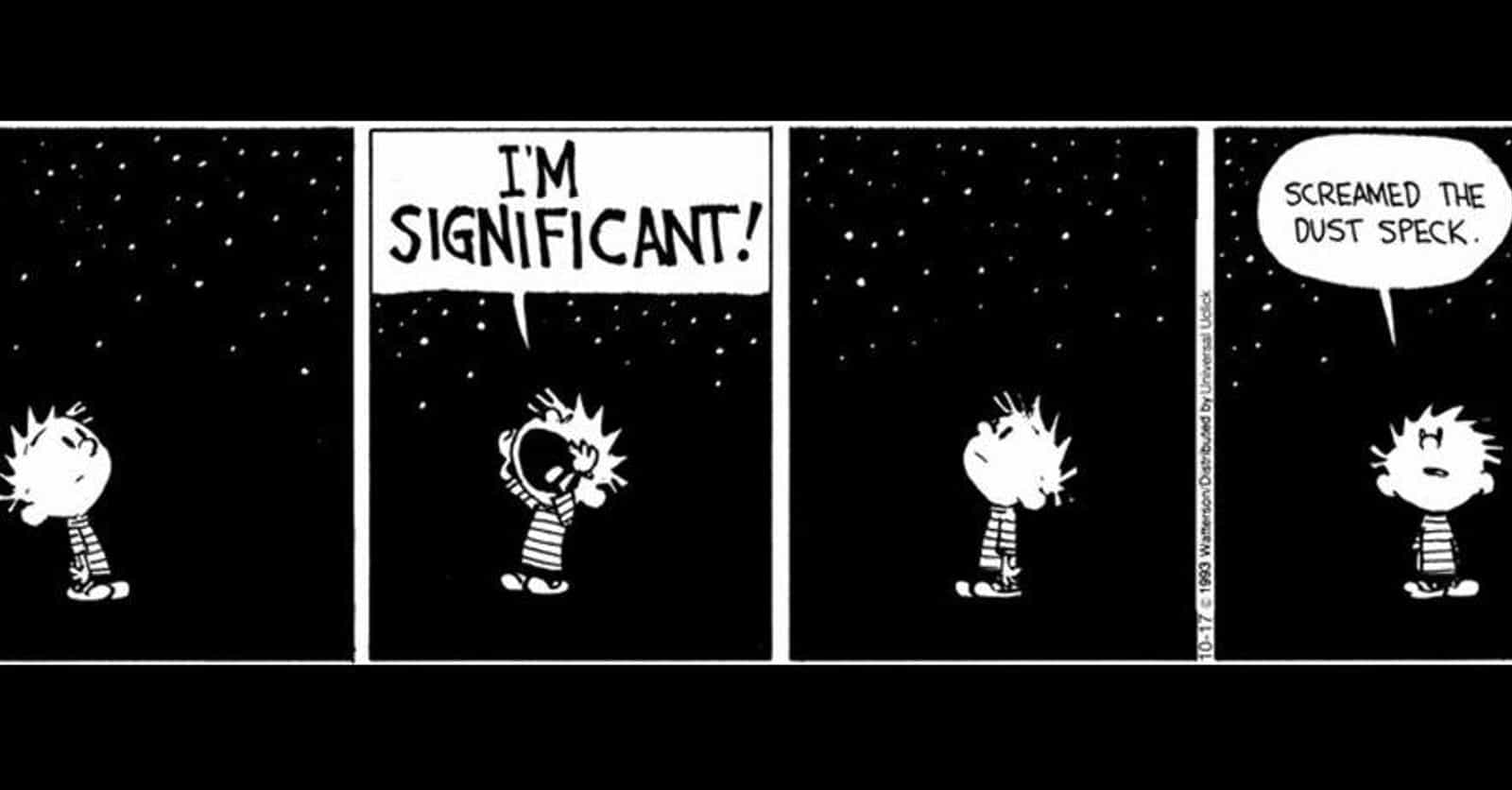
The Surprisingly Dark Political Philosophy of Calvin And Hobbes That You Definitely Missed As A Kid
Calvin Is Named After A Major Figure Of The Reformation
What do comic strips have in common with religious reformers? Not much, except that Calvin's name is inspired by 16th century Protestant reformer John Calvin. Bill Watterson, who was a poli-sci major at Kenyon College, has explained, "It's an inside joke for poli-sci majors."
But the joke goes deeper than a shared name. John Calvin was a strong proponent of predestination, the idea that God had already judged each individual as saved or damned before their birth. While the concept sparked religious wars in the 16th century, the six-year-old main character of Calvin and Hobbes sees predestination as a "get out of jail free" card.
Fate, Destiny, And Predestination Are Major Themes
Photo: Bill Watterson / GoComicsJust like Protestant reformer John Calvin, six-year-old Calvin is curious about the concept of predestination. Are people's fates already decided long before they are born, as many religious figures have argued? Or can people change their fate? Calvin asks Hobbes about fate and predestination in one of the earliest strips from November 30, 1985. For Calvin, the idea that his actions are inevitable would ease his conscience, especially around Christmas time. But Hobbes declares predestination a "scary thought," since it would eliminate any notion of responsibility.
Similarly, in a strip from 1991, Calvin asks Hobbes, "Do you believe our destinies are controlled by the stars?" Hobbes, ever practical, answers, "No, I think we can do whatever we want with our lives." Then, Watterson reminds us that we're reading an imaginary conversation between a six-year-old and his stuffed tiger when Calvin says, "Not to hear Mom and Dad tell it."
Calvin Uses Philosophy To Get Out Of Work
Photo: Bill Watterson / GoComicsWhat kid likes homework? Calvin is definitely no exception, even going so far as to invent curious space aliens to get out of completing his leaf collection project and fantasizing about taking out his school with a fighter jet.
In one memorable strip from June 1, 1993, Calvin tries to end a math lesson with a philosophical question. "Given that, soon or later, we're all just going to die, what's the point of learning about integers?" An exhausted Miss Wormwood simply ignores the question, causing Calvin to complain, "Nobody likes us 'big picture' people."
Typically, children's comics stay away from heavy subjects like the inevitability of death, but somehow Calvin and Hobbes manages to make it funny.
Hobbes Is Named For An English Social Philosopher
As Bill Watterson explained in the The Calvin And Hobbes Tenth Anniversary Book, Hobbes is named after a 17th century philosopher with a "dim view of human nature." Thomas Hobbes wrote an absolutist political treatise, The Leviathan, where he argued that in a state of nature, human lives were “nasty, brutish and short."
Like his namesake, Hobbes isn't impressed with Calvin's philosophical dilemmas. But he's also a much more energetic and friendly fellow than the historical Hobbes - which might be because the character is also inspired by Bill Watterson's cat, Sprite.
The Best Strips Work On Multiple Levels
Photo: Bill Watterson / GoComicsLike Thomas Hobbes, Hobbes the tiger doesn't think much of humans or their priorities. And he isn't shy about letting Calvin know when he's being intolerable. In one strip, a proud Calvin, standing in his tighty-whities, tells Hobbes that he's made in God's image. The tiger's nonplussed response is, "God must have a goofy sense of humor."
In another strip, Calvin wakes up Hobbes in the middle of the night with philosophical questions. "I wonder why man was put on earth," Calvin wonders, "What's our purpose? Why are we here?" Hobbes responds, "Tiger food," and goes back to sleep, leaving Calvin to lie awake looking over his shoulder. While to a child, the strip is simply funny, adults might pick up on the philosophy of Hobbes's namesake, Thomas Hobbes, that human life is "nasty, brutish, and short."
Calvin And Hobbes Discuss The Very Meaning Of Life
Photo: Bill Watterson / GoComicsCalvin and Hobbes spend a lot of time riding in their red wagon through the woods, or sledding in the winter time. The wagon rides give the pair a chance to discuss philosophical topics in a less than scholarly setting. And the strips often have a much deeper meaning than children would recognize. In one strip, Calvin asks what if there is no meaning in life. "Suppose there's no reason, or truth, or rightness in anything?" he wonders as they barrel down a steep hill, Hobbes clutching on to the wagon.
As they fly off a cliff, Calvin ponders, "What if nothing means anything? What if nothing really matters?" And just before they hit the ground, Calvin makes a philosophical 180. "Or suppose everything matters. Which would be worse?"
Without the friendly colors and the cheerful boxes that remind you this is a comic strip, Calvin's monologue would not be out of place in a psychologist's office, showing the dark undercurrents in the strip.
Most Children's Comics Don't Discuss Original Sin
Photo: Bill Watterson / GoComicsCalvin and Hobbes was never afraid of tackling the darkest questions about human nature. For centuries, Christians have debated the concept of original sin, an idea that traces back to St. Augustine's fifth century writings. Augustine argued that everyone is born sinful due to the fall of Adam and Eve. In the 16th century, Protestant reformers weighed in on the idea, with John Calvin arguing for the concept of total depravity.
In a 1993 strip, six-year-old Calvin also wrestles with the idea of original sin. He asks Hobbes, "Do you think babies are born sinful? That they come into the world as sinners?" Hobbes quips, "No, I think they're just quick studies." By reducing a major philosophical debate into a slam on human nature, Hobbes both lives up to his philosophical namesake's pessimism and his feline nature.
Calvin And Hobbes Debated The Meaning Of Life (And Death)
Photo: Bill Watterson / GoComicsCalvin's philosophical musing often serve two purposes: getting him out of work, or justifying bad behavior. In one strip, Calvin puts his own bad days in perspective by looking at the big picture. "Eventually, we're each going to die, our species will go extinct, the sun will explode, and the universe will collapse." With Hobbes looking on blankly, Calvin adds, "Existence is not only temporary, it's pointless! We're all doomed, and worse, nothing matters!"
While existential nihilism is a depressing topic, Calvin is able to brush off the pointlessness of living by consoling himself with the idea that his own crazy antics are small potatoes in the big picture.
Calvin's Philosophy Of Luck Denies Personal Responsibility
Photo: GoComicsCalvin looks to philosophy as a way to avoid the consequences of his actions. And his views on luck ask the same question as 16th century Calvinists: if life is pre-determined, what role is there for free will? Calvin's answer is that life is determined by luck. "It all boils down to luck, Hobbes," Calvin explains on a wagon ride. "Some people are born lucky and some people are born unlucky." As they barrel toward a cliff, Calvin continues, "Either way, there's nothing you can do about it. You can't fight luck."
Hobbes shows the fallacy of Calvin's philosophy when he jumps out of the wagon before the cliff, and as Calvin tumbles off, complaining, "What can you do? Ow! You're condemned to suffer!" Hobbes adds, "Right in the pricker bushes... just like yesterday." Instead of waiting around for luck to change, Hobbes promotes a different philosophy: people control the outcomes of their actions.
Calvin's Hedonism Is Deflated By Hobbes's Rationalism
Photo: Bill Watterson / GoComicsCalvin promotes a particular form of hedonism that advocates ignoring the consequences. But he frames it in philosophical terms, as in the strip where Calvin explains his motto: "Live in the moment." On a quiet stroll through the woods, Calvin tells Hobbes, "You never know how long you've got! You could step into the road tomorrow and - WHAM - you get hit by a cement truck! Then you'd be sorry you put off your pleasures!"
Calvin's philosophy justifies his selfish choices by claiming he has no choice. Hobbes, on the other hand, often deflates Calvin's reasoning, as when he explains his own motto: "Look down the road."
But Some Philosophical Struggles Make Complete Sense To Kids
Photo: Bill Watterson / GoComicsCalvin and Hobbes spends a lot of time pondering Calvin's bad choices. And Calvin spends a lot of time trying to justify them. Philosophy serves as a tool that, wrongly applied, lets Calvin off the hook. However, in many strips Hobbes serves as a voice of reason, even ratting Calvin out to Santa at Christmas time.
And some of Calvin's philosophical questions make complete sense to kids, like "how can I be good when I want to be bad?" In one strip, Calvin wonders if his true dark nature means that he won't be happy in heaven. When Hobbes points out that people who like to be bad don't typically end up in the good place, Calvin quips that he can lead a blameless life by denying his nature. Finally, Calvin concludes "Maybe heaven is a place where you're allowed to be bad!" It's every kid's dream.
For Calvin, Philosophy Is A Tool
Photo: Bill Watterson / GoComicsCalvin might only be six, but he's already mastered using philosophy to get his way, like when he tries to convince his dad to let him watch R-rated movies using the Bill of Rights. Calvin believes he can use philosophy to get his way, like in this strip about chicken. "What if we die and it turns out God is a big chicken??" Calvin yells at the dinner table. But Calvin's reasoning doesn't work on his parents, who tell him to keep eating dinner, in spite of the possible eternal consequences.
Calvin's run-ins with authority often end this way: adults, like his parents or his teacher, refuse to engage in Calvin's philosophical discussions because they can see Calvin's ultimate goal. He's only interested in philosophy as a tool to get his way - which isn't so different from many adults.
The Last Strip Sums Up The Calvin And Hobbes Philosophy Perfectly
Photo: Bill Watterson / Calvin and HobbesAs much as Calvin and Hobbes has dark undercurrents, with discussions of the meaninglessness of life, the futility of existence, and the helplessness of individuals, the comic also celebrated the enthusiasm and optimism of its main characters. Watterson's final strip, printed on December 31, 1995, perfectly captures this more positive philosophy.
In the strip, Calvin and Hobbes walk through snow-covered woods, marveling that the world has been transformed. Calvin declares, "A new year... a fresh clean start!" As they board the toboggan, Calvin adds, "It's a magical world, Hobbes ol' buddy... Let's go exploring!" In spite of the 10 years of dark philosophical discussions, Calvin and Hobbes was always about the ability to remake the world with a little imagination.


